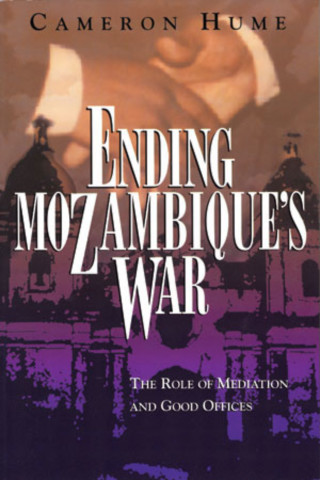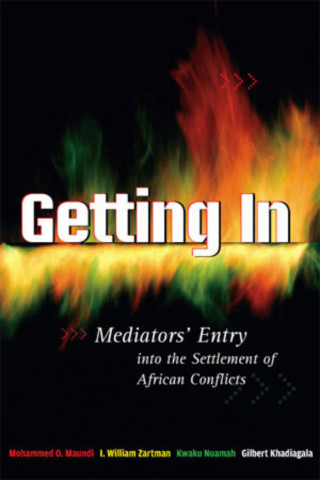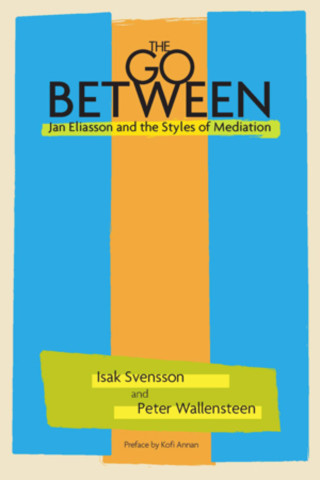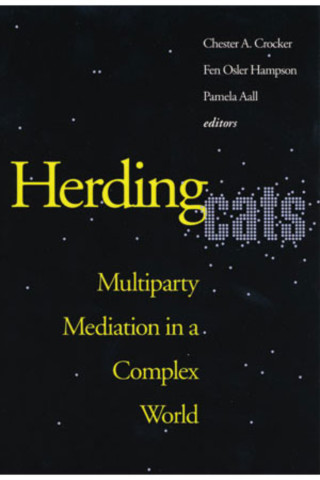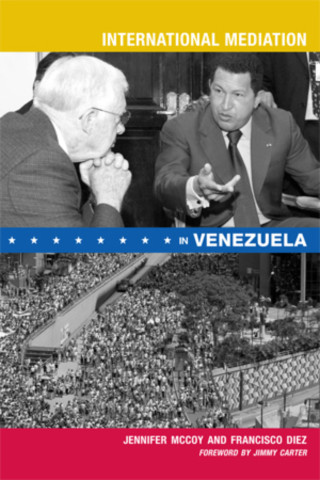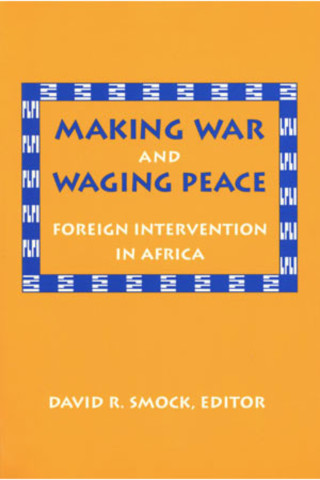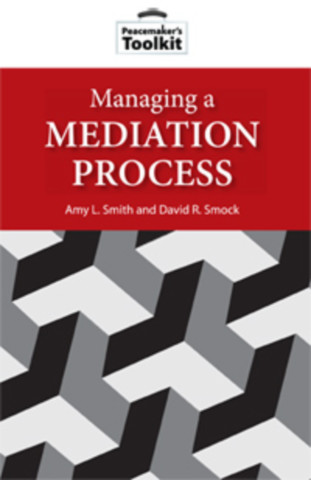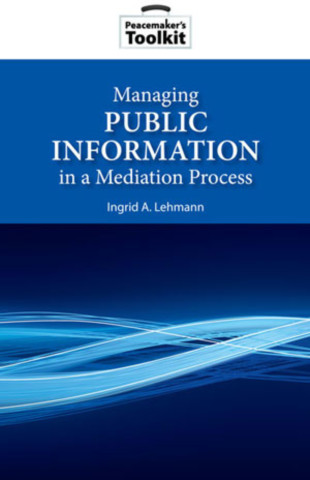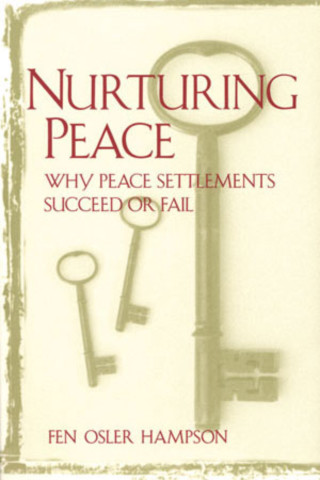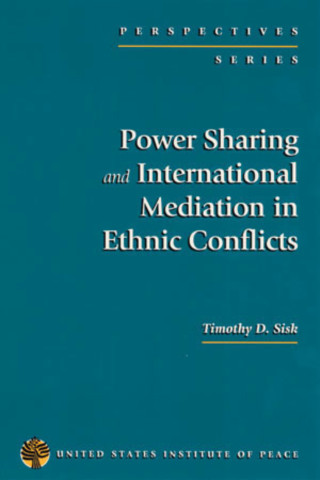Mediation
- Sort by
Fifteen years after winning independence in 1975, Mozambique was wracked by insurgency, devastated by drought, and battered by conflicts with its neighbors. A less auspicious beginning for a new nation could hardly have been imagined.
But the signing of the 1992 peace agreement led to a new beginning. And a team of mediators, operating outside the framework of traditional diplomacy, helped the parties along the path of peace and reconciliation.
This first-hand account of the Mozambique mediations offers intriguing details that illustrate the complexity of the multi-track mediation process. Hume, who was a participant observer in the Rome-based peace talks, relates the stages of the process to the principles of conflict management, negotiation, and mediation in a clear and graceful style. He delineates the separate roles played by the parties themselves (the government and RENAMO), the outside governments that intervened, and the mediators, with a special focus on the unique element in this peace process: the involvement of a private voluntary organization, the Community of Sant'Egidio.
This compelling story of the Mozambican peace process also provides useful lessons for addressing other hostilities in Africa, the Balkans, and the emerging polities of the former Soviet republics.
This collaboration of renowned scholars and a practitioner in conflict management and African politics seeks to draw wide-ranging and timely conclusions on the early stages of mediation from six case studies: Burundi, Rwanda, the Congo, Sudan, and West Africa and the border conflict between Ethiopia and Eritrea.
This volume explores international mediation through the lens of Ambassador Jan Eliasson, an international go-between with a remarkable track record. The authors draw lessons for the peacemaking process from their examination of how Eliasson entered, prepared, pursued, and finally ended his mediation efforts.
An illustrious cast of practitioners here describe their personal experiences in working to bring peace in significant conflicts across four continents. As James Baker, Richard Holbrooke, Max van der Stoel, Alvaro de Soto, Aldo Ajello, and others make clear, the mediator must operate in an environment of daunting complexity, insecurity, and uncertainty. Whether sequestered in Norway or zigzagging across Africa, the mediator can take nothing for granted—not participants, agendas, or timetables—in the struggle to sustain and advance the peace process.
And just to make things more complicated, each conflict now typically attracts several independent mediators. Indeed, coordinating third party mediators is like herding cats—difficult if not impossible.
In each of the two dozen cases examined in this volume, mediation was a multiparty effort, involving a range of actors—individuals, states, international organizations, and NGOs—working simultaneously or sequentially. These vivid accounts attest to the crucial importance of coordinating and building upon the efforts of other players. They also illuminate the opportunities and problems presented by different entry points of mediation—from conflict prevention, through negotiation during active conflict, to post-settlement implementation and peacebuilding—and by different kinds of leverage, levels of engagement, and objectives.
This volume was developed by the same editors who were responsible for USIP Press's highly successful 1996 publication Managing Global Chaos and is intended as a follow-on to that book. In their feedback on the 1996 volume, readers requested additional resources, especially case studies that reflect real, hands-on experience in complex settings. Not only will these cases illustrate how multiparty mediation works or does not work, but they should also stimulate further work on the special requirements and best practices of the field, promote a dialogue among practitioners themselves as well as between academics and practitioners, and lead to unique insights, new understandings, and alternative approaches that can be applied to future mediations.
The editors have framed the volume with discussions that link the practitioner cases to the scholarly literature on mediation, thereby situating the case studies in terms of theory while also drawing lessons for both scholars and practitioners that can help guide future endeavors.
International Mediation in Venezuela analyzes the effort of the Carter Center and the broader international community to prevent violent conflict, to reconcile a deeply divided society, and to preserve democratic processes. From their perspective as facilitators of the intervention and as representatives of the Carter Center, Jennifer McCoy and Francisco Diez present an insider account of mediation at the national and international level.
During the past decade or so, Africa has been beset by an extraordinarily high number of wars. Indeed, some two to three million people died because of Africa’s warefare in the 1980’s alone.
That heavy burden of war, most of it originating internally, has been accompanied by frequent external involvement, both in terms of military intervention and through efforts to promote conflict resolution, usually by mediation.
This volume focuses on the role and effectiveness of external intervention in sub-Saharan Africa, primarily during the 1980’s. The authors include a range of Western and African scholars and policymakers with extensive experience in Africa.
The richly detailed case studies examine Angola and Namibia, Ethiopia and Eritrea, Mozambique, and Sudan. Additional essays assess the role of the OAU and summarize French, British, and Belgium military involvement. An afterword by former diplomat Chester Crocker offers several guidelines for promoting peace-making and peacekeeping on the African continent in the future.
Managing the Mediation Process offers an overview of the process of mediating interstate and intrastate conflicts. Each of its six chapters covers a different step in the process, identifying what needs to be done at that step and how best to accomplish it.
Managing Public Information in a Mediation Process, the second handbook in the Peacemaker's Toolkit series, helps mediators identify and develop the resources and strategies they need to reach these audiences. It highlights essential information tasks and functions, discusses key challenges and opportunities, and provides expert guidance on effective approaches. Examples from past mediations illustrate how various strategies have played out in practice.
Why do some peace settlements endure whereas others collapse into violence almost as soon as they are signed?
Focusing on intrastate conflicts in which third parties have played prominent roles, Hampson argues that durable settlements depend on sustained third-party engagement not only during the negotiation phase but throughout the implementation process. He provides detailed yet succinct accounts of five justly renowned cases (Cyprus, Namibia, Angola, El Salvador, Cambodia), explores the interplay of key variables, and describes rationales for action and lessons about how best to act.
Can power sharing prevent violent ethnic conflict? And if so, how can the international community best promote that outcome?
In this concise volume, Timothy Sisk defines power sharing as practices and institutions that result in broad-based governing coalitions generally inclusive of all major ethnic groups. He identifies the principal approaches to power sharing, including autonomy, federations, and proportional electoral systems.
In addition, Sisk highlights the problems with various power-sharing approaches and practices that have been raised by scholars and practitioners alike, and the instances where power-sharing experiments have succeeded and where they have failed. Finally, he offers some guidance to policymakers as they ponder power-sharing arrangements.

